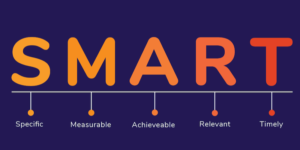Lifestyle encompasses the myriad choices individuals make daily, reflecting their values, preferences, and priorities. These choices significantly influence one’s physical health, mental well-being, social relationships, and overall quality of life. This article examines the key components of lifestyle, highlighting their interconnections and collective impact on holistic well-being.
1.0 Healthy Eating Habits (Eat Well and Live Well)
Healthy eating involves consuming a balanced diet rich in fruits, vegetables, whole grains, lean proteins, and healthy fats. Following guidelines like the Eatwell Guide promotes nutrient diversity and portion control (British Nutrition Foundation, 2021). Reducing processed foods, high in salt, sugar, and saturated fats, lowers the risk of obesity and chronic diseases (WHO, 2020). Eating fibre-rich foods and staying hydrated support digestion and energy balance (Slavin, 2013). Healthy habits are not restrictive but promote a sustainable lifestyle focused on wellbeing and prevention.
2.0 Health and Well-being
Lifestyle choices profoundly affect both physical and mental health. Engaging in regular physical activity, maintaining a balanced diet, ensuring adequate sleep, and managing stress are foundational to well-being. The discipline of Lifestyle Medicine underscores the importance of these factors, emphasising a whole-food, plant-predominant diet, consistent physical activity, restorative sleep, effective stress management, avoidance of harmful substances, and nurturing positive social connections as pillars of health (American College of Lifestyle Medicine, 2024).
3.0 Love and Relationships
Meaningful relationships with family, friends, and romantic partners are central to emotional well-being. The Harvard Study of Adult Development, spanning over eight decades, reveals that strong social connections are among the most significant predictors of happiness and longevity (Waldinger and Schulz, 2023). These relationships provide emotional support, foster a sense of belonging, and enhance resilience against life’s challenges.
4.0 Travel and Holiday (Leisure and Recreation)
Engaging in leisure activities and hobbies offers opportunities for relaxation, creativity, and personal fulfilment. Such activities, ranging from reading and gardening to travelling and participating in sports, contribute to stress reduction and overall life satisfaction (Iwasaki, 2007). Leisure pursuits allow individuals to explore interests, develop skills, and connect with others sharing similar passions.
5.0 Food and Drink
Dietary habits play a crucial role in health and lifestyle. Harvard’s Healthy Eating Plate recommends a balanced diet rich in vegetables, fruits, whole grains, healthy proteins, and oils, while limiting red meat, processed foods, and sugary beverages (Harvard T.H. Chan School of Public Health, 2024). Mindful eating practices not only support physical health but also enhance the enjoyment and appreciation of food.
6.0 Fashion
Fashion serves as a medium for self-expression, allowing individuals to convey their identity, culture, and values. Personal style choices can influence self-esteem and social interactions, reflecting one’s personality and lifestyle preferences (Kaiser, 2012).
7.0 Entertainment
Entertainment, encompassing music, films, literature, and digital media, provides avenues for relaxation, inspiration, and cultural engagement. While entertainment enriches life, it is essential to maintain a balance to prevent overconsumption, which can impact productivity and well-being (Kubey and Csikszentmihalyi, 2002).
8.0 Motivation and Success
Setting goals and pursuing personal achievements are integral to a fulfilling lifestyle. Locke’s Goal-Setting Theory emphasises that specific and challenging goals, coupled with feedback, enhance performance and motivation (Locke and Latham, 2002). Cultivating a growth mindset and celebrating progress fosters resilience and continuous personal development.
9.0 Etiquette and Manners
Practising good manners and etiquette facilitates respectful and harmonious social interactions. Understanding and adhering to social norms, such as politeness and consideration, strengthen community bonds and promote positive relationships (Forni, 2002).
10.0 Humanity and Philanthropy
Engaging in philanthropic activities and acts of kindness enriches both the giver and the recipient. Altruistic behaviours, such as volunteering and charitable giving, contribute to a sense of purpose and community connection (Post, 2005).
11.0 Money and Wealth
Financial well-being is a significant aspect of lifestyle. Effective money management, including budgeting, saving, and mindful spending, reduces stress and supports long-term goals. Harvard’s Arthur Brooks highlights that curbing detrimental spending habits is crucial for financial happiness (Brooks, 2024).
12.0 Work-Life Balance
Balancing professional responsibilities with personal life is essential for overall well-being. Allocating time for family, hobbies, and self-care prevents burnout and enhances productivity. Harvard emphasises the importance of prioritising work-life balance to maintain health and satisfaction (Harvard Business Review, 2023).
13.0 Personal Development
Continuous learning and self-improvement are hallmarks of a dynamic lifestyle. Engaging in educational pursuits, acquiring new skills, and setting personal goals contribute to self-efficacy and adaptability in an ever-changing world (Dweck, 2006).
References
American College of Lifestyle Medicine (2024) 6 Pillars of Lifestyle Medicine. Available at: https://lifestylemedicine.org/ (Accessed: 22 April 2025).
British Nutrition Foundation (2021) Healthy eating. Available at: https://www.nutrition.org.uk/.
Brooks, A. (2024) ‘Financial happiness: curbing bad spending habits’, Business Insider, 15 March. Available at: https://www.businessinsider.com/financial-happiness-curb-bad-spending-habits-lifestyle-creep-credit-cards-2024-6 (Accessed: 22 April 2025).
Dweck, C.S. (2006) Mindset: The New Psychology of Success. New York: Random House.
Forni, P.M. (2002) Choosing Civility: The Twenty-Five Rules of Considerate Conduct. New York: St. Martin’s Press.
Harvard Business Review (2023) ‘The importance of work-life balance’, Harvard Business Review, 10 October. Available at: https://hbr.org/2023/10/the-importance-of-work-life-balance (Accessed: 22 April 2025).
Harvard Health Publishing (2024a) ‘The 4 most important types of exercise’, Harvard Health Publishing. Available at: https://www.health.harvard.edu/exercise-and-fitness/the-4-most-important-types-of-exercise (Accessed: 22 April 2025).
Harvard Health Publishing (2024b) ‘Self-care: A guide to prioritising your well-being’, Harvard Health Publishing. Available at: https://www.health.harvard.edu/mind-and-mood/self-care (Accessed: 22 April 2025).
Harvard T.H. Chan School of Public Health (2024) ‘Healthy Eating Plate’, The Nutrition Source. Available at: https://www.hsph.harvard.edu/nutritionsource/healthy-eating-plate/ (Accessed: 22 April 2025).
Iwasaki, Y. (2007) ‘Leisure and quality of life in an international and multicultural context: what are major pathways linking leisure to quality of life?’, Social Indicators Research, 82(2), pp. 233–264.
Kaiser, S.B. (2012) Fashion and Cultural Studies. London: Bloomsbury Academic.
Koenig, H.G. (2012) Religion, Spirituality, and Health: The Research and Clinical Implications. ISRN Psychiatry, 2012, Article ID 278730. doi:10.5402/2012/278730
Kubey, R. and Csikszentmihalyi, M. (2002) ‘Television addiction is no mere metaphor’, Scientific American, 286(2), pp. 74–80.
Locke, E.A. and Latham, G.P. (2002) ‘Building a practically useful theory of goal setting and task motivation: A 35-year odyssey’, American Psychologist, 57(9), pp. 705–717.
Post, S.G. (2005) Altruism and Health: Perspectives from Empirical Research. Oxford: Oxford University Press.
Slavin, J.L. (2013) ‘Fibre and prebiotics: mechanisms and health benefits’, Nutrients, 5(4), pp.1417–1435.
Waldinger, R. and Schulz, M. (2023) The Good Life: Lessons from the World’s Longest Scientific Study of Happiness. London: Simon & Schuster.
World Health Organization (2020) Healthy diet. Available at: https://www.who.int/news-room/fact-sheets/detail/healthy-diet.









